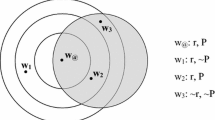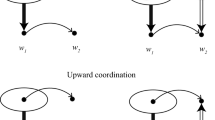Abstract
Knowledge closure is, roughly, the following claim:
For every agent S and propositions P and Q, if S knows P, knows that P implies Q, and believes Q because it is so implied, then S knows Q.
Almost every epistemologist believes that closure is true. Indeed, they often believe that it so obviously true that any theory implying its denial is thereby refuted. Some prominent epistemologists have nevertheless denied it, most famously Fred Dretske and Robert Nozick. There are closure advocates who see other virtues in those accounts, however, and so who introduce revisions of one sort or another in order to preserve closure while maintaining their spirit. One popular approach is to replace the “sensitivity” constraint at the heart of both of those accounts with a “safety” constraint, as advocated by Timothy Williamson, Duncan Pritchard, Ernest Sosa, Stephen Luper, and others. The purpose of this essay is to show that this approach does not succeed: safety does not save closure. And neither does a popular variation on the safety theme, the safe-basis or safe-indicator account.
Similar content being viewed by others
References
DeRose K. (1995) Solving the skeptical problem. Philosophical Review 104: 1–52
Dretske F. (1970) Epistemic operators. Journal of Philosophy 67: 1007–1023
Dretske F. (1981) Knowledge and the flow of information. MIT Press, Cambridge
Dretske F. (2005a) The case against closure. In: Sosa M., Steup E. (eds) Contemporary debates in epistemology. Blackwell, Oxford, pp 13–26
Dretske F. (2005b) Reply to Hawthorne. In: Sosa M., Steup E. (eds) Contemporary debates in epistemology. Blackwell, Oxford, pp 43–46
Hawthorne J. (2005) The case for closure. In: Sosa M., Steup E. (eds) Contemporary debates in epistemology. Blackwell, Oxford, pp 26–43
Lewis D. (1973) Counterfactuals. Cambridge University Press, Cambridge
Luper S. (1984) The epistemic predicament: Knowledge, Nozickian tracking, and scepticism. Australasian Journal of Philosophy 62(1): 26–49
Luper S. (2006) Dretske on knowledge closure. Australasian Journal of Philosophy 84(3): 379–394
Nozick R. (1981) Philosophical explanations. Oxford University Press, Oxford
Pritchard D. (2005) Epistemic luck. Oxford University Press, Oxford
Pritchard D. (2007) Anti-luck epistemology. Synthese 158: 277–297
Pritchard D. (2008) Sensitivity, safety, and anti-luck epistemology. In: Greco J. (eds) The oxford handbook of scepticism. Oxford University Press, Oxford, pp 437–455
Pritchard D. (2009) Safety-based epistemology: Whither now?. Journal of Philosophical Research 34: 33–45
Roush S. (2005) Tracking truth: Knowledge, evidence, and science. Clarendon Press, Oxford
Sosa E. (1999a) How to defeat opposition to Moore. Philosophical Perspectives 13: 141–154
Sosa E. (1999b) How must knowledge be modally related to what is known. Philosophical Topics 26: 373–384
Sosa E. (2007) A virtue epistemology: Apt belief and reflective knowledge. Oxford University Press, Oxford
Stalnaker R. (1968) A theory of conditionals. American Philosophical Quarterly, monograph no. 2: 98–112
Stine G. (1976) Skepticism, relevant alternatives, and deductive closure. Philosophical Studies 29: 249–261
Williamson T. (2002) Knowledge and its limits. Oxford University Press, Oxford
Author information
Authors and Affiliations
Corresponding author
Rights and permissions
About this article
Cite this article
Alspector-Kelly, M. Why safety doesn’t save closure. Synthese 183, 127–142 (2011). https://doi.org/10.1007/s11229-010-9755-x
Received:
Accepted:
Published:
Issue Date:
DOI: https://doi.org/10.1007/s11229-010-9755-x




